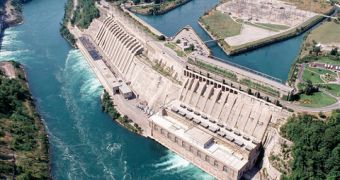Given the fact that climate change and global warming will undoubtedly impact on our society's current water sources, researchers working with the US Climate Change Center and the California Energy Commission decided to investigate how these phenomena will affect the state's hydropower capacity.
Working on the assumption that Californian average temperatures will increase by as much as 2.7 degrees Celsius (36.86 degrees Fahrenheit) throughout the first half of this century, and also taking into consideration the fact that violent storms and wildfires will start to occur ever more often, the specialists reached a rather alarming conclusion.
Thus, they argue that California's hydropower capacity will diminish to a considerable extent. Add to this the fact that electricity demands are likely to increase, and a potential energy crisis in this part of the US might be just around the corner.
As explained in said report (“Our Changing Climate 2012, Vulnerability and Adaptation”), most of California hydropower energy is generated by facilities located at heights of about 1,000 feet (roughly 300 meters).
These facilities exploit the water supply of reservoirs found close to them. In turn, these reservoirs get their water from melting snow and are, therefore, bound to be affected by milder winters.
Interestingly enough, it seems that these reservoirs will fail to successfully provide for California's hydropower generating facilities especially during the summertime, which is the exact time of the year when electricity demands increase as a result of people turning on their AC units.
Last but not least, as Rewire informs us, this report makes a case of how, because of the aforementioned extreme weather manifestations and wildfires, transmission lines might also be affected.
From where we stand, things are not looking very good for California's hydropower capacity, but hopefully, with this warning in place, the state's officials will soon design and implement projects aimed at safeguarding citizens from the negative effects of a potential energy crisis.

 14 DAY TRIAL //
14 DAY TRIAL //